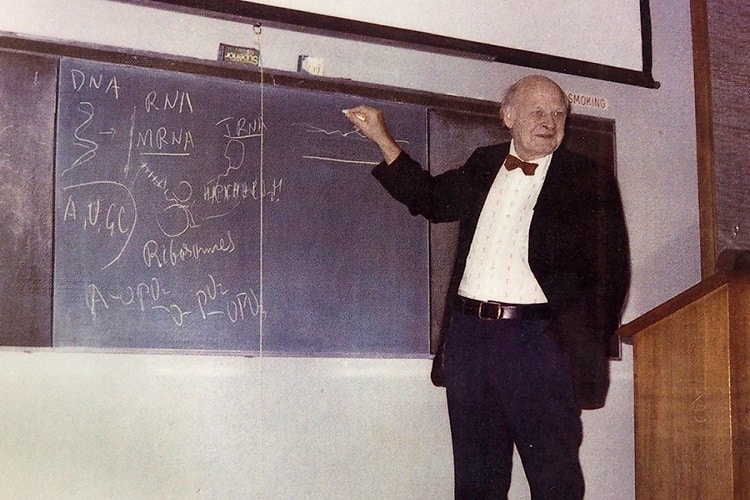Lars Onsager (27 November 1903 – 5 October 1976) was an American physical chemist. Lars Onsager was awarded the Nobel Prize in Chemistry.
Life and Career
Lars Onsager was born on 27 November 1903, in Oslo, Norway.
He attended the University of Oslo, where he initially studied chemical engineering. Later, he switched to pure chemistry and graduated with a bachelor’s degree in 1925. He continued his education at the Norwegian Institute of Technology in Trondheim and earned a doctorate in chemical engineering in 1928.
After completing his Ph.D., Onsager held academic positions in Norway before moving to the United States in 1933. He worked at various institutions, including Johns Hopkins University and Brown University. During his career, Onsager conducted pioneering research in the field of statistical mechanics and thermodynamics.
One of Onsager’s most famous contributions is the development of the Onsager reciprocal relations, also known as the Onsager relations. These relations describe the symmetry and reciprocity of transport phenomena in systems that are out of equilibrium, such as electrical and thermal conductivities in solutions. His work in this area earned him the Nobel Prize in Chemistry in 1968.
Lars Onsager spent the later years of his career at Yale University, where he continued his research and mentored numerous students. He remained active in the scientific community until his retirement in 1972.
Lars Onsager passed away on 5 October 1976, in Coral Gables, Florida, United States.
Award and Legacy
Lars Onsager was awarded the Nobel Prize in Chemistry in recognition of his groundbreaking work on the reciprocal relations in non-equilibrium thermodynamics. His contributions revolutionized the understanding of transport phenomena in complex systems. The Nobel Committee praised his work for its fundamental significance and its impact on various branches of science.
Lars Onsager’s work and discoveries continue to shape the way scientists understand and study complex systems, and his legacy lives on in the ongoing pursuit of knowledge in the fields of physical chemistry and thermodynamics. His profound impact on science is a testament to his brilliance and dedication to advancing human understanding of the natural world.

